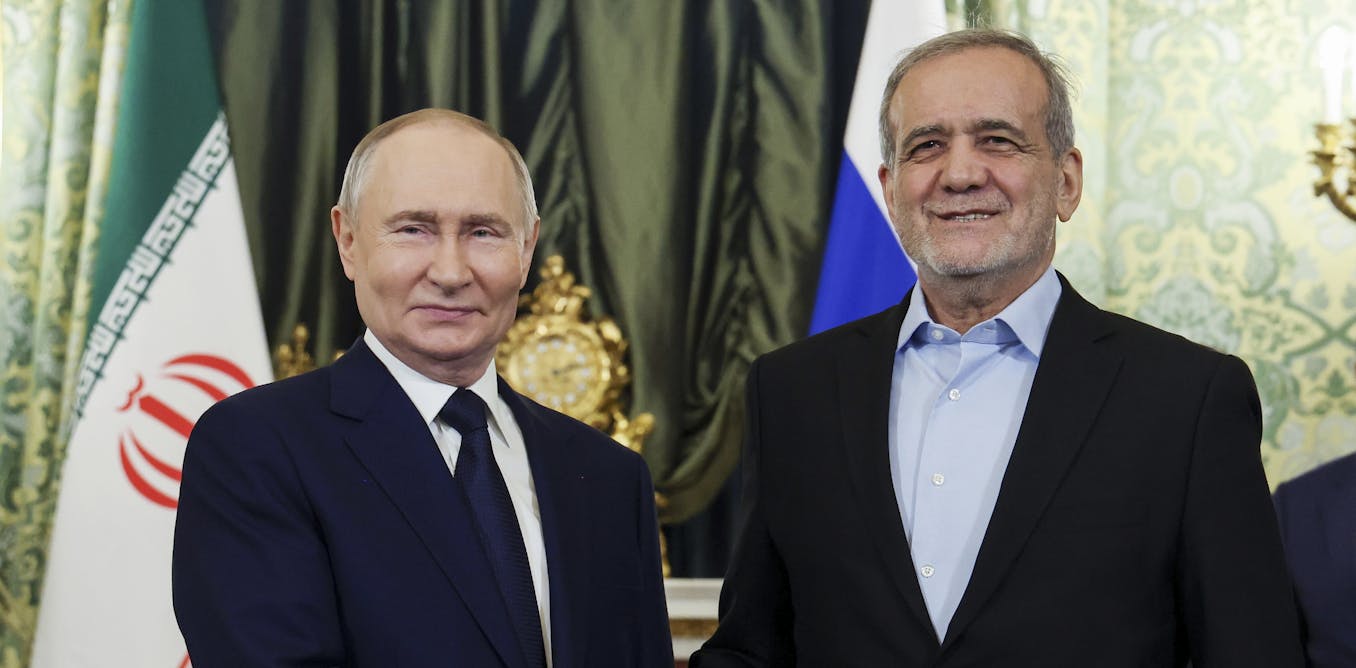As Israel intensifies its military actions against Iran, U.S. President Donald Trump and other international leaders are adopting a firmer stance towards the Islamic Republic. Trump has pondered a potential U.S. attack on Iran’s nuclear facilities, threatening the country’s supreme leader by claiming to know his whereabouts and branding him “an easy target.” He has demanded “unconditional surrender” from Iran.
Countries like Germany, Canada, the UK, and Australia have similarly ramped up their rhetoric, insisting that Iran must completely abandon its nuclear ambitions. With this escalating pressure, many are wondering whether Iran stands alone or has allies that may come to its support. Has the so-called “axis of resistance” fully disintegrated?
Historically, Iran has depended on a network of allied paramilitary groups throughout the Middle East as part of its deterrent strategy, which has largely buffered it against direct military strikes from the U.S. or Israel, despite persistent threats. This network includes Hezbollah in Lebanon, the Popular Mobilisation Forces (PMF) in Iraq, Houthi fighters in Yemen, and Hamas in Gaza, all of whom have been influenced by Tehran to varying extents. Until last year, Iran had also supported Bashar al-Assad’s regime in Syria.
These groups have functioned as both a regional protector and a means for Iran to assert influence without direct military confrontation. However, Israel has significantly weakened this network over the past two years, particularly targeting Hezbollah, once Iran’s strongest non-state ally. The group has faced substantial losses, with critical stockpiles destroyed through Israeli military actions and the assassination of key leader Hassan Nasrallah impacting its morale and strategy.
Similarly, Iranian-backed militias in Syria have been largely expelled, leading to a reduction in Iran’s influential presence in that region. Nevertheless, Iran retains a powerful foothold in Iraq and Yemen. The PMF, boasting around 200,000 fighters, remains formidable, while the Houthis command a comparably large contingent in Yemen.
In the event of an existential threat to Iran, the only Shiite-led nation in the region, religious solidarity could compel these groups to actively engage in the conflict. The PMF, for instance, may retaliate against the 2,500 U.S. troops stationed in Iraq. Kata’ib Hezbollah, a hardline faction within the PMF, has issued a warning: “If America dares to intervene in the war, we will directly target its interests and military bases spread across the region without hesitation.”
Iran could also retaliate by launching ballistic missiles at U.S. bases in Persian Gulf nations or by closing the Strait of Hormuz, a key chokepoint for approximately 20% of the world’s oil supply.
Will Iran’s allies, both regional and global, come to its aid? Several regional powers, notably Pakistan—the sole Islamic nation with nuclear capabilities—maintain strong relations with Iran. Iranian Supreme Leader Ali Khamenei has been working to strengthen ties with Pakistan amid rising tensions with Israel.
The significance of Pakistan in this conflict is highlighted by Trump’s meeting with the country’s army chief in Washington as discussions of potential military strikes loom. Pakistani leaders have expressed unequivocal support for Iran; Prime Minister Shehbaz Sharif recently affirmed “unwavering solidarity” in addressing “Israel’s unprovoked aggression,” while Defence Minister Khawaja Asif asserted that Israel will “think many times before taking on Pakistan.”
These declarations indicate a strong stance, albeit without a definitive commitment to military intervention. Pakistan is simultaneously advocating for diplomatic solutions, urging other Muslim-majority nations and its strategic ally, China, to mediate before the situation escalates further.
In recent years, Iran has made diplomatic moves toward former adversaries like Saudi Arabia and Egypt in an attempt to foster improved relations. This strategy has garnered broader regional backing, as nearly two dozen Muslim-majority countries—including some with ties to Israel—have condemned Israel’s actions and called for de-escalation.
Nonetheless, it is improbable that Saudi Arabia, Egypt, the United Arab Emirates, or Turkey would materially support Iran, given their strong ties with the U.S. On a global scale, Iran can count on allies like Russia and China, both of which have denounced Israel’s military strikes and have historically shielded Iran from UN Security Council sanctions. However, neither nation appears poised to escalate the situation by providing military backing to Iran or clashing directly with Israel and the U.S. at this time.
This stance could shift if the conflict expands and the U.S. pursues a regime change strategy in Tehran, as both Russia and China have significant geopolitical and security interests tied to Iran’s stability. That said, analysts believe both countries are unlikely to engage directly in the conflict at this stage. Moscow, for instance, refrained from intervention when Assad’s regime fell in Syria, focusing instead on its priorities in Ukraine and not wishing to jeopardize improving relations with the Trump administration. Although China has lent strong rhetorical support to Iran, it has historically shown little inclination to participate in Middle Eastern conflicts outside its immediate interests.

